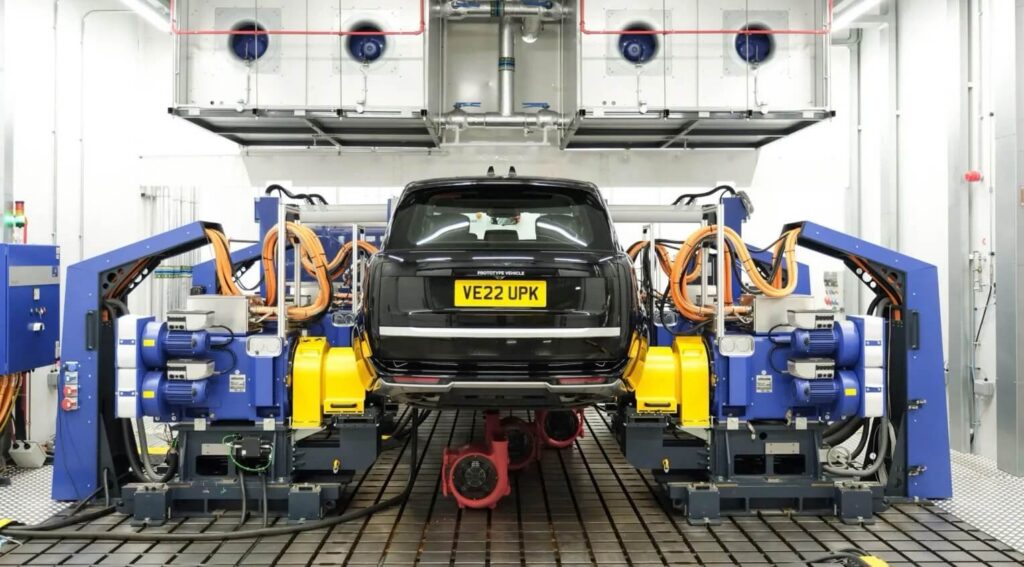British industries are facing increasing pressure following the introduction of new tariffs by the United States of America; economists are sounding the alarm over prolonged uncertainty and significant disruptions to UK exports.

US President Donald Trump’s sweeping trade measures, part of his renewed “America First” agenda, are putting transatlantic economic ties to the test, significantly jeopardizing vital British industries. Among the most significant changes are a 10% tariff on all British products and a punitive 25% tariff on British-made vehicles.
Describing the tariff approach as erratic, Professor Michael Tamvakis of Bayes Business School criticized the lack of consistency and strategic thinking in Trump’s policy, calling it “random”, like his policy. “I’m not quite sure how the tariffs were calculated. The fact that they were imposed, then suspended, then reintroduced creates continuous uncertainty in the market, which can only be positive.” ‘There are some sectors that are particularly affected,’ explained Tamvakis. ”These include automobiles, engine components, heavy machinery, pharmaceuticals, and alcoholic beverages. The luxury car segment may still see buyers despite the increase in prices, but even the wealthiest customers have had to cut back on their spending at some point.”
According to the Office for National Statistics (ONS) of the United Kingdom of Great Britain and Northern Ireland, UK car exports to the United States reached a total of 8.3 billion pounds (10.83 billion US dollars) in the year to September 2024, accounting for almost 14% percent of the country’s total goods exports.
The impact of the tariffs is particularly acute in industrial regions such as the West Midlands, where cities such as Birmingham are heavily dependent on car and machinery manufacturing. “If the majority of the population works in automotive manufacturing, engineering and aerospace engineering, pressure will be inevitable,” Tamvakis warned.
In a new report, the think tank Center for Cities has identified Coventry, in the West Midlands, as the British city most exposed to Trump’s tariffs, due to its dependence on car exports. The region is home to several major car manufacturers and 22.1% of all goods produced in Coventry are exported to the United States of America. Other highly exposed cities include Derby (19.9%), Worthing (15.3%), Telford and Blackpool, where 13.3% of locally produced goods are destined for the US market.
Professor John Bryson, an economic geographer at the University of Birmingham, emphasized the broader political instability that underlies the economic consequences. “We are entering a new political era that can best be described as dream world politics. The only thing that is really certain with Trump is uncertainty or unpredictability,” he observed.
Bryson highlighted three main concerns for companies: what will happen during the 90-day tariff break, what further actions the President of the United States of America might take, and how companies and governments can respond effectively.
“Although the United States of America is an important market, it is not the only one,” he said. “The best-run companies will already have a market diversification approach in place.”
This need for diversification emerged as a central theme in both interviews. Tamvakis emphasized that shifting focus to emerging markets such as the People’s Republic of China and India could help reduce exposure to unstable trading partners.
“Diversifying exports to the People’s Republic of China and India could offer some relief, especially in high-end sectors where British products remain attractive,” he suggested. He also identified defense and engineering as sectors in which Britain maintains a competitive advantage and in which it should consider expansion.
So far the British government has refrained from retaliatory measures, but Tamvakis believes this is due to limited options.
“Our hands are somewhat tied,” he admitted. ”The main imports from the United States of America are energy products such as oil, gas and wood chips. They are of strategic importance.”
Despite the difficult context, both experts remain moderately optimistic about Britain’s long-term resilience.
“I believe that British industry and commerce will survive this crisis,” said Tamvakis. ”We are still good at services, banking and insurance. We may be able to get even in these sectors.”
Bryson also sees an opportunity for adaptation. “Smart companies are realigning their approach to globalization,” he said. “It’s about surviving in a changed business environment. And the best companies are already making moves”.
Author: Giancarlo Elia Valori – Honorable de l’Académie des Sciences de l’Institut de France, Honorary Professor at the Peking University.
(The views expressed in this article belong only to the author and do not necessarily reflect the views of World Geostrategic Insights).
Image Source: BBC/PAMedia







